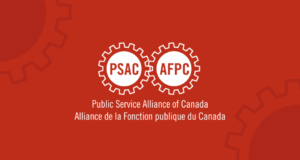- Accueil
- Enjeux actuels
- Négociation et Représentation
- Trouvez votre représentant
- Conventions collectives
- Négociations
- Comment rédiger une revendication contractuelle
- Guides et matériel de référence
- Formulaires
- Décisions importantes
- Réaménagement des effectifs
- Aménagements d’horaires de postes variable (AHPV)
- Plaintes et griefs relatifs à la protection de la vie privée
- Lutte pour le télétravail : ressources importantes
- Membres en civil
- Santé et sécurité
- Droits de la personne
- À propos
- En
- Téléphone: 613.723.8008
© Syndicat des douanes et de l'immigration Customs and immigration union




